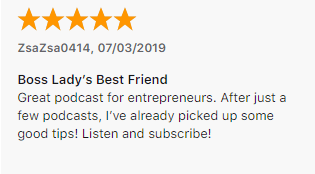The Fast-Track Woman Podcast: Episode #27
Is Starting a Podcast for Your Business Right For You (with
Dr. Lorissa MacAllister)
Click the Play Button + Listen Below.
Meet Podcast Guest, Dr. Lorissa MacAllister.
Lorissa MacAllister PhD, AIA, NCARB, LEED AP, EDAC, is the founder of Enviah, an evidence-based consulting firm that uses a people-centered approach that is both multidimensional and multidisciplinary. Enviah creates healthcare environments where people thrive. Enviah helps healthcare providers more effectively accomplish their mission.
Lorissa and Enviah work to integrate people, technology, systems and space, ensuring that healthcare environments are driven by health and care. Her research includes the exploration of patient room and unit physical layouts and their impact to patient self-reported outcomes at Emory University Hospital in Atlanta, Georgia. Additional research includes the exploration of healing environments as a Senior Fellow at the Samueli Institute.
Dr. Lorissa MacAllister is a researcher, speaker, architect and writer who is blending her years of experience and expertise in healthcare and architecture to pioneer a unique approach to design in the healthcare industry and beyond. Lorissa has dedicated herself to guiding organizations to the next level of integrated performance by systematically aligning operations, spaces, processes, culture, sustainability, business performance, revenue and user experience.
Using evidence-based design and other research, she is constructing a new approach to built environments. She speaks nationally to help bring about transformative change that benefits stakeholders, patients, the community and the environment.

About this Podcast Episode.

Wondering if you should start a podcast for your business? Want to know how to decide if this platform is right for you? Terra Bohlmann interviews Dr. Lorissa MacAllister on her method to decide if starting a podcast is the right move for a woman entrepreneur.
Dr. Lorissa MacAllister is the founder of Enviah, an evidence-based consulting firm that uses a people-centered approach to create healthcare environments where people thrive. She's a researcher, speaker, architect, and writer who is blending her years of experience and expertise in healthcare and architecture to pioneer a unique approach to design in the healthcare industry and beyond.
Dr. Lorissa MacAllister breaks down her decision process to start her upcoming podcast, Re:think Re:align Re:work. Podcasting is a growing platform for women entrepreneurs to share their knowledge. Wondering if you should start a podcast soon? If so, you'll love this episode because Terra and Lorissa do the thinking for you.
Resources, Tools, and Links Mentioned in this Episode.
- To learn more about Lorissa, visit www.enviah.com.
- Apply for your complimentary Fast-Track Session with Terra HERE.
Read and Download the Transcript for this Episode.
Interact More with the Podcast.
Great Reviews Make My Heart Sing.

Much appreciation from one happy Podcast Host!
Are you subscribed to my podcast?
If you’re not, you should subscribe so you never miss an episode.
And...I invite you to take it a step further + leave a 5-Star review.
To give a review, click the image and select “Ratings and Reviews” and “Write a Review” on iTunes.
Share a takeaway what you learned and let other women entrepreneurs know why they should listen to the podcast.
Reviews help other women entrepreneurs find my podcast and I truly enjoy reading them.
It takes a community of like-minded women to help other like-minded women succeed.
(Oh, by the way, I love to do shout-outs on future episodes and you just may hear your name!)



